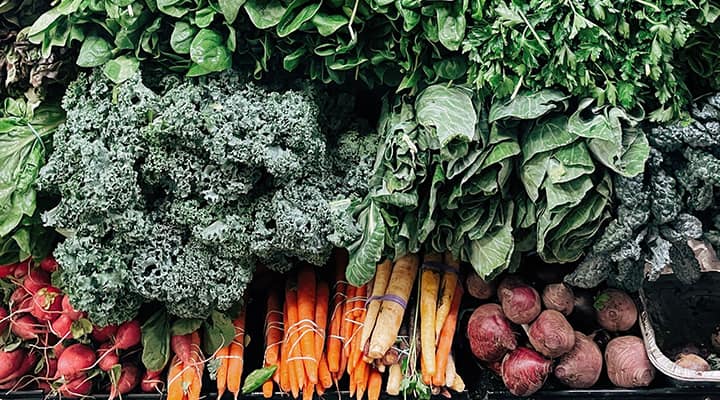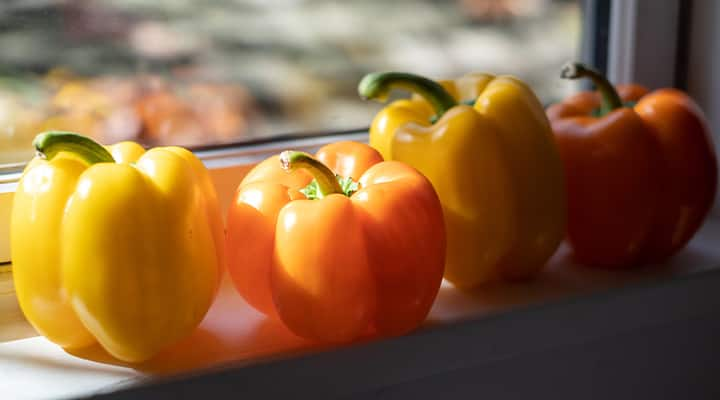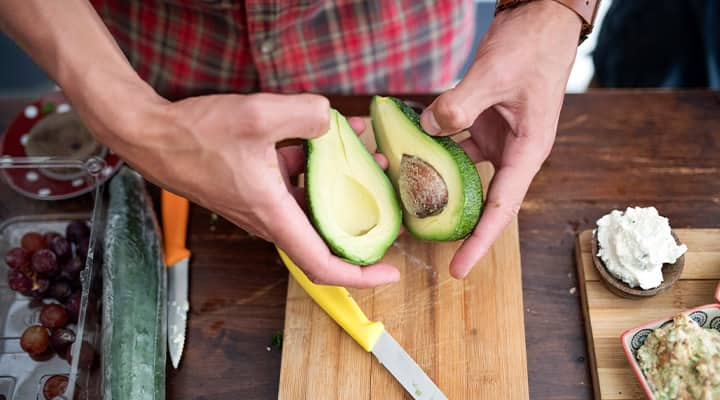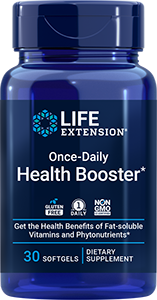
18 Lutein-Rich Foods to Add to Your Diet
Published: December 2024
Focused on your eye health? Be on the lookout for lutein! This powerful carotenoid antioxidant helps support the retina and macula and is often found alongside its companion, zeaxanthin, in both food sources and supplements.
If you want to make sure you are including this nutrient in your diet, be sure to incorporate green and yellow foods, as well as some orange and red foods into your meals. It's also abundant in dark leafy greens like spinach, kale and collard greens. Plus, some yellow and orange fruits and vegetables such as corn, papaya and orange bell peppers are great sources. The vibrant colors of these foods are a good indicator of the carotenoid content, including lutein and its companion antioxidant, zeaxanthin.
Let's explore the top foods to consider incorporating into your eating pattern, and how they can help keep your eyes and brain healthy.
Why do you need lutein?
This carotenoid is essential for supporting eye health, as it accumulates in the retina and helps protect against excess light exposure and oxidative changes in the body. Studies show that folks with higher amounts of lutein in their eyes often have better visual health and are able to maintain a healthy macula, which is the part of your eye that helps your central vision.
Beyond eye health, it has also been linked to supporting brain function, memory, and cognitive function in adults.
18 foods high in lutein
Here's a handy list of the best foods high in lutein. But remember, when in doubt, look for the green, yellow, and orange colored fruits and veggies to meet your daily needs of this nutrient.
1. Spinach
Packed with lutein and zeaxanthin, spinach provides a powerful dose of eye-supporting nutrients. Whether eaten raw in salads or cooked in dishes, this nutritional powerhouse also is a good source of vitamins A and C.
2. Kale
Kale is another salad bar staple that boasts impressive amounts of lutein and antioxidants. Adding kale to smoothie recipes, soups, or stir-fries can help support eye health and overall wellness.
3. Broccoli
Broccoli not only provides lutein, but is also rich in fiber, vitamins C and K, and other antioxidants that support immune function. It's a versatile veggie that can be enjoyed roasted, steamed or enjoyed in salads.
4. Egg yolks
Egg yolks are a highly bioavailable source of lutein and zeaxanthin, meaning the body absorbs these nutrients efficiently. This is because they contain some fat. Including a few eggs per week in your diet can contribute to better eye and brain health.
5. Corn
You might think of ears when it comes to corn (as in ears of corn, if you'll excuse the corny joke), but did you know this delicious and sweet vegetable is really good for your eyes? It's perfect for adding to salads, soups, or simply enjoyed as a side dish.
Should You Supplement with Lutein?
There are a few types of people who may benefit the most from supplementation:
-
Family history
. If you have a family history or are concerned about cognitive health, lutein supplements can support brain function and help maintain memory and focus. -
Older individuals
. These supplements are particularly beneficial for those looking to support their eye health, such as older adults who have experienced a decrease in sharp vision as part of the aging process. -
Desk workers and sunseekers
. People who spend long hours in front of screens or are frequently exposed to sunlight may also benefit, as lutein helps protect the retina from blue light damage. (If you're a gamer, we have supplements tailored to this type of screen time.) -
Folks who don't eat lutein-rich foods
. If you're not someone who typically "eats the rainbow," you should consider a supplement to ensure you get adequate levels. One good option is Ocular Support with Saffron & Astaxanthin.
As always, we recommend you consult with your healthcare provider to determine the best approach for your individual needs and lifestyle.
6. Green and red bell peppers
These bell peppers are rich in both lutein and zeaxanthin, along with vitamin C. Their vibrant color and zesty flavor make them a tasty and nutritious addition to any meal.
7. Zucchini
Zucchini is not only a summer favorite but also a good way to support your eyes! It can be grilled, roasted, or added to stir-fries for a nutritious boost.
8. Brussels sprouts
These mini cabbages are packed with lutein, fiber, and other essential vitamins. Roasting Brussels sprouts with a drizzle of olive oil can enhance lutein absorption.
9. Avocados
Avocados are a good source of the nutrient, and they also contain healthy fats that improve the absorption of carotenoids from other vegetables. Enjoy them in salads, on toast, or as a creamy addition to smoothies.
10. Squash
Squash varieties like butternut and acorn are rich in carotenoids. Enjoy your favorite variety roasted for a delicious, eye-healthy side dish.
Explore Our Best Lutein Supplements
11. Pistachios
Pistachios are the only nuts that contain significant amounts of either lutein or zeaxanthin. Plus, since they provide a fat source, this makes pistachios a highly bioavailable source of lutein. Enjoy them raw for an easy way to support your eye health; grab some as a snack or incorporate into salads and such for added crunch. Or, make your own pistachio butter.
12. Peas
Peas are a small but mighty source of lutein. They can be added to pasta dishes, stews, or blended into a creamy side dish.
13. Green beans
A good way to get this nutrient, green beans are easy to incorporate into a variety of meals. Try them steamed, sautéed, or added to casseroles for a nutrient boost.
14. Turnip greens
Often overlooked, turnip greens are rich in lutein and other essential nutrients. They make a nutritious addition to soups or can be enjoyed sautéed with garlic and olive oil.
15. Papaya
This tropical fruit is not only delicious but also contains lutein, vitamin C and antioxidants. Papaya can be enjoyed on its own, in fruit salads or blended into smoothies.
16. Scallions
Scallions, also known as green onions, add a delicate flavor and vibrant color to dishes while providing a small but consistent boost to your lutein intake. Use them as a garnish for soups, salads, or stir-fries to incorporate this nutrient into your meals effortlessly.
17. Red and green grapes
Both red and green grapes contain lutein along with a host of other antioxidants that may support eye health. Their natural sweetness makes them an easy snack or addition to salads and cheese platters, plus they're hydrating and packed with vitamins like C and K1.
18. Cucumbers
Crisp and refreshing, cucumbers are hydrating vegetables that contain lutein, though in smaller amounts compared to their leafy green counterparts. They are perfect for adding crunch to salads, sandwiches, or as a base for dips like tzatziki. Tip: eat them with their skin on to get the biggest nutritional bang for your buck!
How much lutein do I need every day?
To achieve the recommended daily intake of 6-20 mg of lutein, include a variety of these foods in your diet. For example, one cup of cooked spinach provides about 20 mg of lutein, while a cup of cooked kale contains around 10 mg. Other good options include broccoli, corn, peas and egg yolks. You can add these fruits and vegetables to smoothies, salads, omelets, or side dishes to ensure you're getting enough.
If you find it challenging to get enough lutein from food alone, consider taking a high-quality lutein supplement, especially if your diet is low in leafy greens and colorful vegetables for health benefits like supporting eye and brain health.
How to increase lutein absorption
Eating enough of the right foods is step one, but you also need to absorb it well to see a difference in your health. To maximize the benefits of lutein-rich foods, consume them with a source of healthy fat, like olive oil, avocado, or nuts, as lutein is a fat-soluble nutrient. Additionally, incorporating both raw and cooked vegetables into your diet can help ensure you're getting the most out of these eye-protecting nutrients.
Your lifestyle and nutritional habits also impact your status. Poor diet, stress, and lifestyle habits like smoking can affect levels of this and other nutrients in the body. For a variety of reasons, we would all be better off consuming more fruits and veggies, managing your stress with healthy coping skills, and quitting smoking.
Lutein: FAQs
Why do you need lutein?
This nutrient is essential for protecting the eyes, especially the retina. Higher levels of lutein in the eyes are linked to healthier eyes. Plus, it also supports healthy brain and memory function in adults.-
How can you add lutein to your diet?
Include foods like dark leafy greens, egg yolks, and colorful vegetables in your meals. Note that lutein is often found along with zeaxanthin in both food and supplements for maximum eye health benefits. -
What can affect lutein levels in your body?
Lutein needs to be consistently obtained through diet or supplements. Insufficient consumption is the main cause of low levels. Poor absorption can also be an issue, but consuming lutein with healthy fats improves absorption. Additionally, oxidative stress, such as from smoking, can affect lutein levels. Does cooking destroy lutein?
Prolonged cooking can reduce the lutein content in foods, while light cooking methods, especially when a fat source is added, can help with bioavailability and absorption. Eating a mix of raw and cooked vegetables can help ensure adequate intake.
Looking for more? Read about other nutrients for eye support, like astaxanthin.
References
- Abdel-Aal el-SM, et al. "Dietary sources of lutein and zeaxanthin carotenoids and their role in eye health." Nutrients. April 2013. https://pmc.ncbi.nlm.nih.gov/articles/PMC3705341/
- Feng L, et al. "Effects of lutein supplementation in age-related macular degeneration." PLoS One. December 2019. https://pmc.ncbi.nlm.nih.gov/articles/PMC6936877/
- Ranard KM, et al. "Dietary guidance for lutein: consideration for intake recommendations is scientifically supported." Eur J Nutr. December 2017. https://pubmed.ncbi.nlm.nih.gov/29149368/
- Sommerburg O, et al. "Fruits and vegetables that are sources for lutein and zeaxanthin: the macular pigment in human eyes." Br J Ophthalmol. 1998. https://pmc.ncbi.nlm.nih.gov/articles/instance/1722697/pdf/v082p00907.pdf
- Yagi A, et al. "Lutein Has a Positive Impact on Brain Health in Healthy Older Adults: A Systematic Review of Randomized Controlled Trials and Cohort Studies." Nutrients. May 2021. https://pubmed.ncbi.nlm.nih.gov/34063827/
- Dietary Reference Intakes for Vitamin C, Vitamin E, Selenium, and Carotenoids. Institute of Medicine (US) Panel on Dietary Antioxidants and Related Compounds. 2000. https://www.ncbi.nlm.nih.gov/books/NBK225483/
- "Lutein & Zeaxanthin Concentration in Fruits & Vegetables." American Macular Degeneration Foundation. https://www.macular.org/wp-content/uploads/2016/05/lutein.pdf
Always be in the know!
Access the latest deals, wellness news, expert health tips & more!











